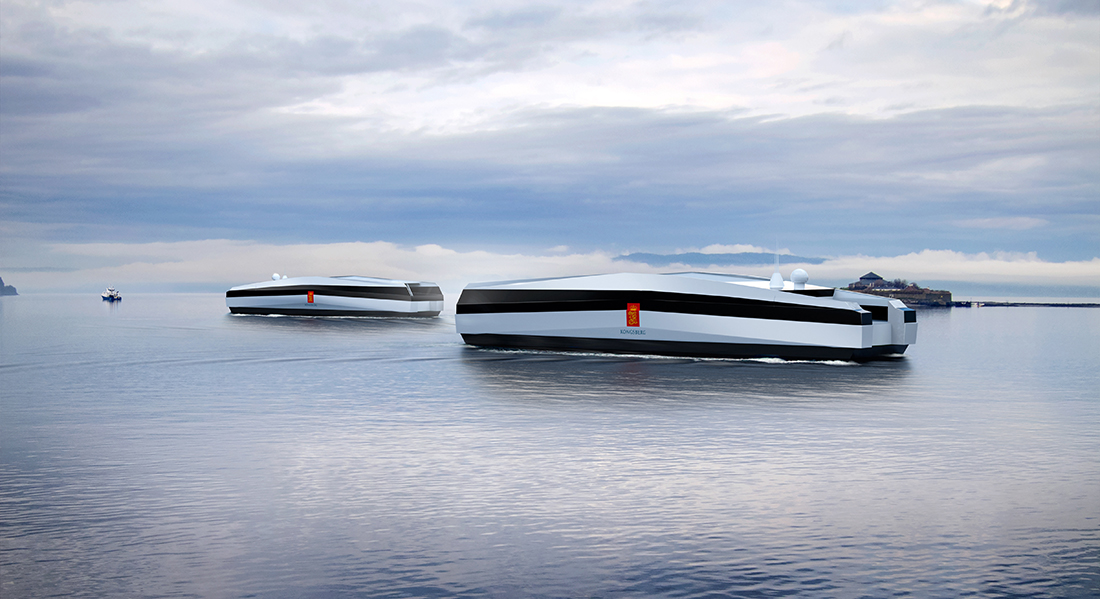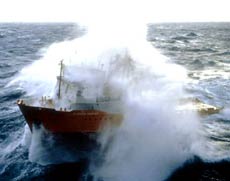Maritime Transport - Ocean Science and Technology

Maritime Transport
Knowledge for a safer, smarter, more environment-friendly and energy-efficient maritime transport.
Knowledge areas
- Sea properties and manoeuvring
- Ship design
- Smart energy systems
- Smart marine operations
- Safety and risk management
- Efficient ports and route plans
 Copyright Kongsberg Seatex
Copyright Kongsberg SeatexAutonomous ships
The Trondheim fjord is the first designated test area in the world for autonomous (unmanned) ships. These are vessels that can manoeuver by themselves and that can take their own decisions. NTNU contributes to developing the next generation of decision making systems through the implementation of self-learning, adaptive systems and artificial intelligence. A joint initiative of NTNU, Kongsberg Seatex, Kongsberg Maritime, SINTEF and Maritime Robotics in cooperation with Trondheim Harbour and the Norwegian Maritime Authority.
 IEA Hydrogen in Maritime Transport
IEA Hydrogen in Maritime Transport
NTNU leads Task 39 "Hydrogen in maritime transport" of the International Energy Agency – Hydrogen Implementing Agreement (IEA-HIA). Task 39 provides know-how on the use of hydrogen and fuel cells in the maritime sector, evaluates concepts and to initiates R&D projects. 2017-2020.
 Copyright Rolls Royce
Copyright Rolls RoyceRolls-Royce University Technology Centre (UTC)
The Rolls-Royce University Technology Centre is a long-term research collaboration between NTNU and Rolls-Royce Marine. The centre aims at promoting research with a commercial potential, in particular development of propellers, propulsion systems, ship designs, and various types of ship equipment.
Joint Centre of Excellence for Arctic Shipping and Operations
This Centre aims at advancing safe arctic operations and transport through a holistic risk-based approach. It focuses on design relevant actions occurring during the entire life-cycle of the ship or installation at sea. It is a collaboration between NTNU, Aalto University (Finland), Memorial University of Newfoundland (Canada) and the University of Helsinki (Finland), and funded by Lloyd Register Foundation.
Low Energy and Emission Design of Ships (LEEDS)
Ship design is largely setting the baseline for energy usage and emission levels The objective of LEEDS is to develop new knowledge for optimising ship design and to educate personnel to develop novel solutions for energy and emission reduction in the maritime industry.
Safe and green dynamic positioning (DP) operations of offshore vessels in an arctic environment (Arctic DP)
The main focus of this project is on understanding the physics of DP vessel motions in arctic sea-ice in order to develop mathematical models and numerical simulators for use in automatic control theory, estimation, and development of decision support tools for improved design and situational awareness. The project was awarded by the Research Council of Norway to NTNU and industry partners Kongsberg Maritime, Statoil, and DNV-GL for the project period 2010-2014.
Other Research Areas
Sverre Steen
sverre.steen@ntnu.no
+47-93406429
Rolls-Royce University Technology Centre (UTC)
Joint Centre of Excellence for Arctic Shipping and Operations

